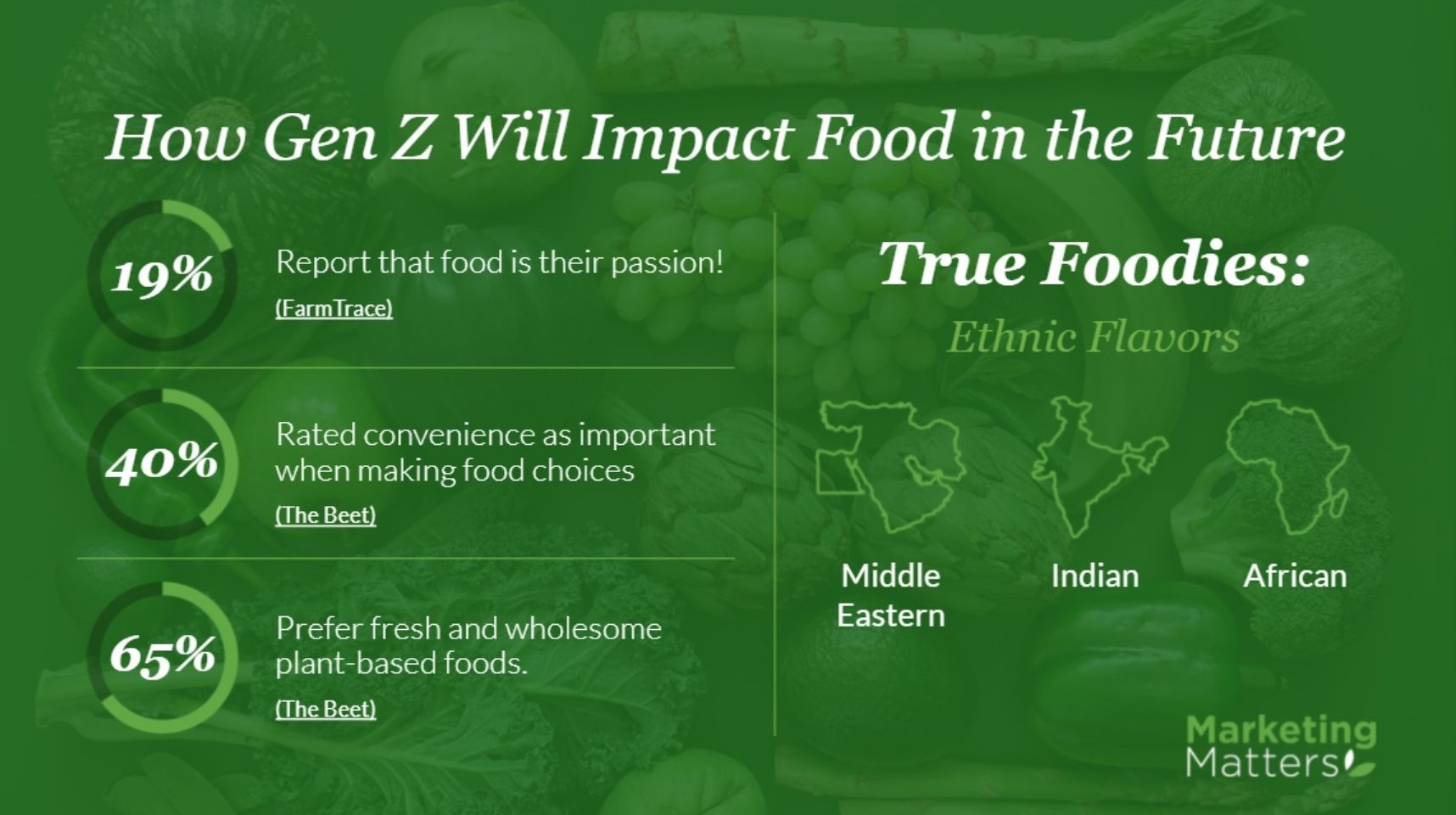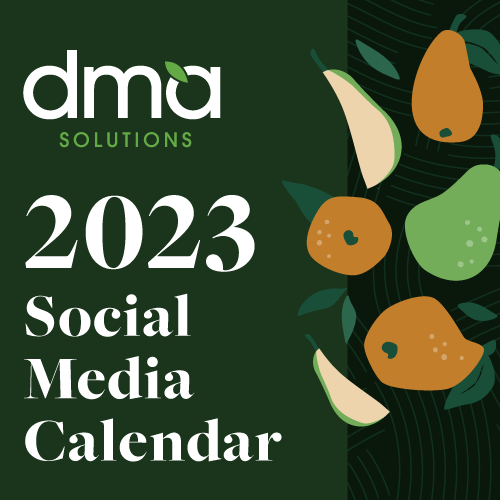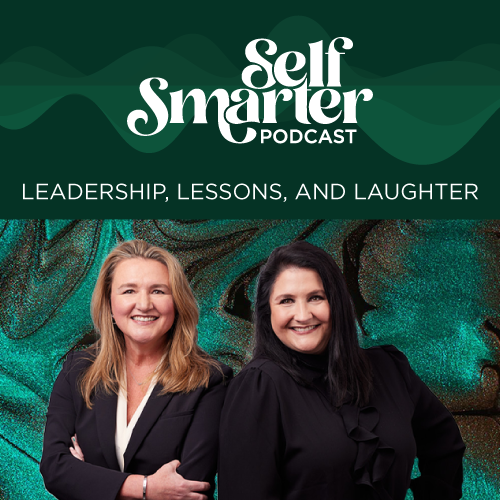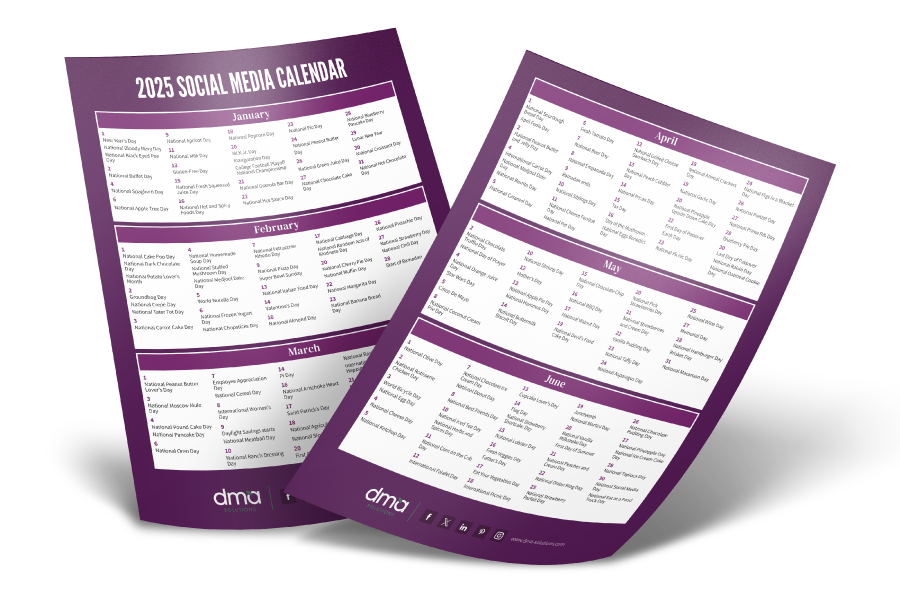Did you know that at 65 million strong, Generation Z makes up a quarter of the US population? That’s right – and at roughly 6 to 24 years old, the oldest members are starting to enter the workforce! Marketing veterans in the fresh produce space might agree that as an industry, we sat on our laurels when it came to preparing ourselves to effectively market to millennials. Let’s not make this same misstep with the next generation. Here are the realities of marketing to Gen Z.
Who is Gen Z?
A majority of studies define Gen Z as currently being anywhere between 6 – 24 years old. Millennials were raised mostly by optimistic boomers who were doing quite well for themselves in the 80s and early 90s when millennials were born, whereas Gen Z is being raised by the more realist Gen Xers who have struggled during the 2008 recession. The result is a generation that is much more pragmatic, discerning, and financially savvy. They are also the most educated generation and are more likely to pursue college than any other generation, which is especially interesting considering the rising cost of college tuition. That might be why almost half (49%) of Gen Zers plan to contribute to their college tuition through their own personal savings. Bottom line: Gen Z loves to learn, they want to be educated and they are going to be more careful with their finances as a result.
How Will Gen Z Impact Food In The Future?

So let’s get right down to it. As fresh produce marketers, we need to know how this generation views food and we’ve identified several key areas of the food landscape that Gen Z will strongly impact in the coming years:
-
-
- Snacking – At school, members of this generation get an average of 25 minutes for lunch and rely on snacks to hold them over until dinner. According to a recent survey, 54% of teens preferred healthy snacks and 49% consume or were willing to try plant-based meat.
- Corporate Responsibility – When it comes to Gen Z, brands need to put their money where their mouth is. This generation cares deeply about supporting causes, brands, and companies they believe have a positive social impact. In their eyes, businesses and corporations have an obligation to use their influence to positively impact the world – it has to be about more than just profits. So for food, Gen Z will look for sustainability, environmental, and worker’s rights-related stories and efforts.
- Price Sensitivity – Because they grew up watching their parents struggle through the recession, they are very price-sensitive compared to other generations. It’s important to communicate value in your marketing, especially with a premium-priced product. If a product is being sold at a higher price point due to sustainable packaging or something tied to a corporate or social responsibility story, they might be willing to pay more if you’re able to highlight that benefit to them. And if that doesn’t work – keep in mind that they love deals. They’re very willing to sign up for email lists to get 15% off – so email marketing and digital couponing should be in your marketing arsenal.
- Plant-based, Local, Authentic, and/or Farm-Raised – According to Mckinsey, about 65% of Gen Zers try to learn the origins of anything they buy—where it is made, what it is made from, and how it is made. What a great opportunity for us as produce marketers! In addition, menu callouts such as “natural,” “organic,” and “sustainable” resonate with Gen Z more than any other generation, according to Flavor & The Menu’s Generational Flavors report. Gen Z is also more likely to be vegans or vegetarians, according to a 2019 Packaged Facts report and 65% of Gen Z say they want a more “plant-forward” diet.
Before Marketing To Generation Z, Ask Yourself…
-
-
Gen Z is going to look for brands that they perceive to be authentic, inclusive, and socially responsible, while also seeking out strong value for their money. As you look ahead and prepare your marketing to reach this generation, you should ask yourself:
-
-
-
-
- How should we communicate our brand’s promise through people?
- How can I highlight my employees as part of the brand?
- What can I teach to help my audience learn?
- What authentic influencers is our audience following that also align with our brand?
- Do I have enough content to reach them and is it in the right places?
- What does our brand STAND for?
-
-
-
Are your marketing efforts ready for the realities of reaching Gen Z? If not, give us a call. We’d love to help you assess your current marketing plan and find ways to target this new generation of shoppers!
-
- {{cta(’78d3fee5-7e8f-4f2a-b7d6-64eb5db8389f’,’justifycenter’)}}












